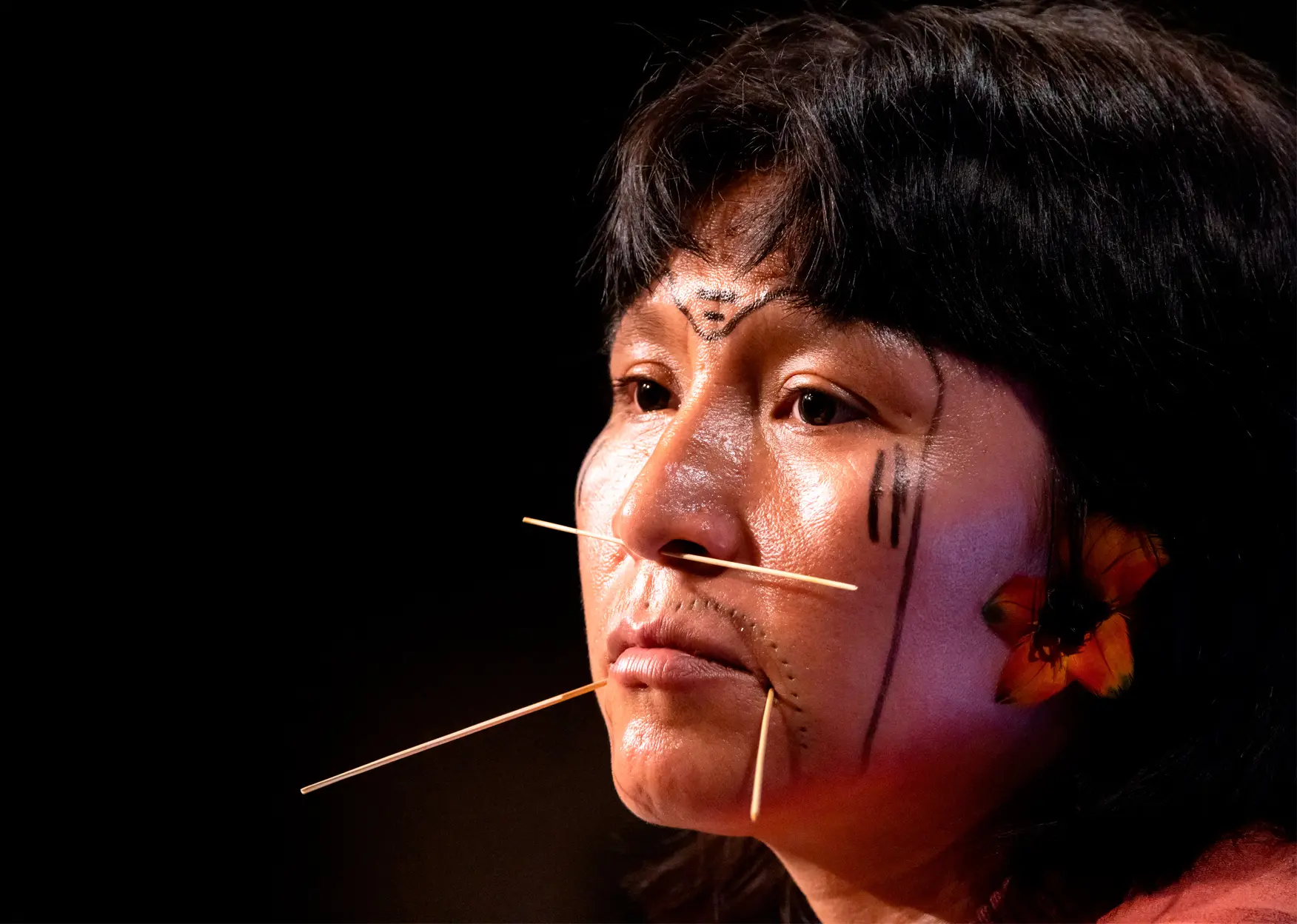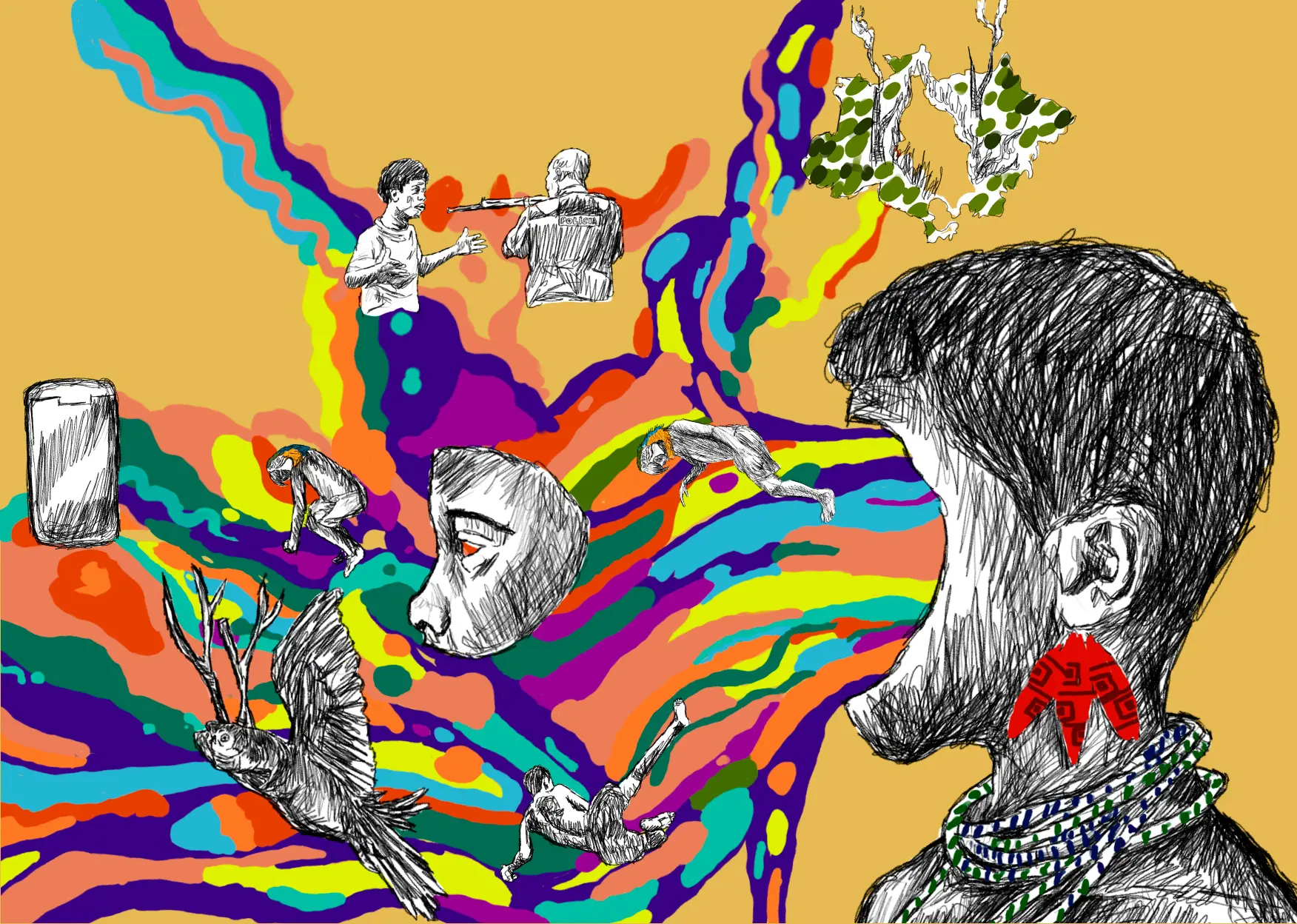Dear community,
Since January 20, when SUMAÚMA reported that at least 570 Yanomami children had died as a result of inadequate health care during Bolsonaro’s four-year term in office, the world has turned its attention to the genocide of this Indigenous people. This is precisely what needs to happen because no nation can live with genocide without destroying its present and its potential for a future. Emergency health care aimed at saving all possible Indigenous lives is only the first step. Expelling the miners is the second, and many others must follow as well, such as the prosecution of those responsible. Protecting Indigenous territories is a permanent duty of the state, laid down in the Constitution. Unfortunately, there are other horrific situations in addition to the Yanomami genocide that must be denounced and combated, many of these provoked or aggravated by the far-right laboratory that was the Bolsonaro administration. Other imminent or ongoing disasters will test the sincerity of President Luiz Inácio Lula da Silva’s campaign promise to protect the Amazon and other biomes, address the climate crisis, and respect peoples-nature. This issue of SUMAÚMA brings two in-depth articles on these urgent issues.
One report was done in partnership with King’s College London. Shortly after Brazil’s presidential elections in October 2022, a team led by Octávio Ferraz was in Katõ Village, in Munduruku territory, where the invasion of miners has made access difficult. There they investigated the horrors of mercury poisoning among this Indigenous population. So far, no mass testing has been done, but if it were, it might uncover another case of Indigenous genocide in Brazil.
Octávio Ferraz is a researcher, professor, and attorney. At King’s College, he heads the Transnational Law Institute, which conducts research and other activities in the field of law aimed at “safeguarding the well-being of humanity and ensuring the protection and respect of nature, on which we depend.” He is the author of Health as a Human Right (Cambridge University Press, 2021) and since 2021 has led the project The Laws of our Sustainable Future, “which investigates the social, political, economic, and cultural determinants of the efficacy of laws to protect the environment and the human rights of forest peoples in various countries.” The project fosters partnerships between academia and investigative journalism as a vital tool for producing robust knowledge and efficaciously communicating the results of field research. To this end, SUMAÚMA has entered into a partnership with King’s College London that will extend through the end of this year.
Within the framework of this collaboration between law and journalism, Octavio traveled to Munduruku territory accompanied both by the journalist Luís Patriani, author of the book Paraíba do Sul, História de um Rio Sobrevivente (Editora Horizonte, 2010), and by the journalist, writer, and documentary filmmaker Patrick Granja, who has been covering accusations of human rights violations in favelas of large Brazilian cities along with agrarian and ethno-environmental conflicts in the interior since 2008. Patrick also directed the documentaries Terra e Sangue: Bastidores do Massacre de Pau D’Arco (2017), Livres (2017), Surimã: O Rio do Veneno (2018), and A Troco de Nada (2022). In addition, he is author of the book Cadê o Amarildo? (Editora Revan, 2015).
The other hard-hitting story in these pages examines an issue that will be fundamental in defining Lula’s administration—and how Brazil will appear on the international stage in the near future. Hard as it is to believe, they’ve managed to lump the Amazon and petroleum together into one single project—precisely when fossil fuel companies are quite rightly being cast as the bad guys who have taken the planet to the point of climate collapse. The Amazon, whose complex biodiversity and interconnectedness makes this biome a great climate regulator, should be an essential part of the solution. Claudia Antunes, one of Brazil’s most experienced, respected journalists, debuts in SUMAÚMA with an article on a project to drill for oil near the mouth of the Amazon River, a venture already in the later planning stages. Claudia held senior positions at Jornal do Brasil and Folha de S. Paulo, piauí magazine, and, more recently, O Globo, where she headed the international desk.
In this report, Claudia outlines what may prove to be the first serious impasse for Lula, elected by a broad front that included famous defenders of the Amazon alongside infamous destroyers of the Amazon—and who also has to work with a Congress where the majority of members are more concerned about immediate profits than our future climate and the Amazon and other biomes. Petrobras’s new executives have signaled that they are more than willing to move forward with the project. Meanwhile, Brazil’s environment minister, Marina Silva, born in the Amazon forest and the country’s leading climate activist, has made it clear that she will study the project on her desk quite cautiously.
The fate of this destructive project is the fate of the Lula administration and of Brazil. Understanding and working to block the project is also a responsibility of the SUMAÚMA Community. This would be the first time Petrobras, or any other oil concern, would drill offshore along the Amazon coast, precisely where the river empties into the ocean. Current exploration efforts, which are equally destructive, take place onshore.
The government’s decision to immediately send healthcare providers to rescue critically ill members of the Indigenous Yanomami people, while logistically challenging, can only be seen as easy and obvious (unless the president and his top advisors were genocidists). Blocking any attempt to drill for fossil fuel in the Amazon, in a country where the idea of modernity has been inextricably linked to oil, is much more complicated. The decision will depend—and a lot—on pressure from civil society and the organized peoples of the Amazon, socioenvironmental organizations, and international players.
We must show we will accept no further predatory exploitation of the Amazon. Nor will we allow Lula’s third administration to renege on its public pledges to protect nature and its peoples—which is what Lula’s second administration did when it implemented major hydroelectric projects in the Amazon, fueling a process of destruction the likes of which Brazil had not seen since the business-military dictatorship (1964-1985). SUMAÚMA will be on high alert, as a journalism outlet with a real commitment to democracy should be.
* * *
Not to say that we cover nothing but pain and suffering, this issue also features two exciting events. Last week brought the culmination of a fascinating journey: Sonia Guajajara and Célia Xakriabá were sworn in as federal deputies and, after her swearing in, Sonia left Congress to take office as Brazil’s first female Indigenous minister. Joenia Wapichana, who paved the road to Congress for all other Native women, took her seat as the first Indigenous person to head the National Foundation of Indigenous Peoples, or FUNAI, formerly known as the National Indian Foundation. These three women reached the center of power in Brasilia after a long uphill battle, starting from the grass roots. The journalist and writer Alessandra Roscoe tells of this in a video that interweaves the voices of some of the thousands of Indigenous women who together are writing a new chapter in another history, using quills from their headdresses.
Our community already knows Maickson Serrão, podcaster, journalist, and host of Rádio SUMAÚMA. In this issue, he tells us what it was like for a ribeirinho [from a traditional forest community] and a member of the Tupinambá Indigenous people to attend the World Economic Forum in Davos, Switzerland, from a daily diet of fast food and temperatures of ten degrees Fahrenheit to the hardest part: sitting at a table with notorious forest destroyers. Maickson, as we know, has turned his Pavulagem—his self-declared flamboyance—into an ethical and political commitment.
Happy reading and happy struggle! We will continue together, fighting like the forest, with joy as the main tool of our reXistence.
Eliane Brum
SUMAÚMA creator and director
Translated by Diane Whitty




